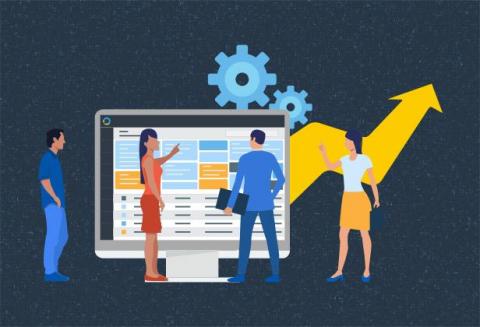Operations | Monitoring | ITSM | DevOps | Cloud
ITSM
The latest News and Information on IT Service Management, Service Desk and related technologies.
Change Templates: Your Roadmap for Necessary IT Changes
Go Beyond Audit: Network Monitoring for BFSI Companies
With pandemic’s sudden hitting, most offices and companies had to quickly move their operations and have an apt Work-from-Home policy defined, the technology gap in both the front end and the companies’ back-end operations came in scathing review , While BFSI institutions also had a WFH policy, there services were deemed to be necessary. Since people couldn’t line up outside banks, the banks had to keep their technology fine-tuned to assist their customers in these testing times.
How an Oil & Gas conglomerate automated their IT service delivery
Our client is one of the biggest oil and gas conglomerates in India, contributing to around 75% of Indian domestic production. They have been in business for over 60 years, currently employing around 30,000 people. With decades of growth, they have entered into different ancillary companies and expanded globally. The expansion has led to several offices, branches, desks, and teams spread across geographies.
Puppet Camp America West: Puppet ENC - A ServiceNow Scoped Application
Your ITSM should have purpose-built workspaces
Look around your desk, and you probably see a variety of tools that make you more productive — an ergonomic chair, a mug of coffee or tea, a notepad, or a charger. As individuals, we put great thought into making our personal space productive, a habit that many organizations have yet to fully replicate in their digital workspaces.
5 things you should look for in your ITSM chatbot
Chatbots are rising in popularity, both in consumer and enterprises circles, because they are quick, sometimes clever, and ultimately help workers and customers get answers to common questions without bogging down your service team. As part of our ITSM Professional package, ServiceNow’s Virtual Agent far exceeds some of the chatbots you may have used in your personal life for one simple reason – access to information.
Simplify your IT service delivery with Motadata ServiceOps
Traditionally, IT service management was limited to legacy platforms and infrastructure. Due to a lack of process, interacting with IT teams was frustrating and difficult, resulting in the workforce becoming less engaged, and the gap between the IT team and business growing even further. Since IT service management was already a complicated task for most IT teams, COVID-19 only exacerbated the repercussions.
Panel: The Future of IT Service Management
CareAR announces augmented reality integration with ServiceNow
CareAR announces the availability of its ServiceNow integration, providing an innovative industry solution seamlessly extending enterprise-grade augmented reality (AR) visual support as part of a ServiceNow digital workflow experience.









